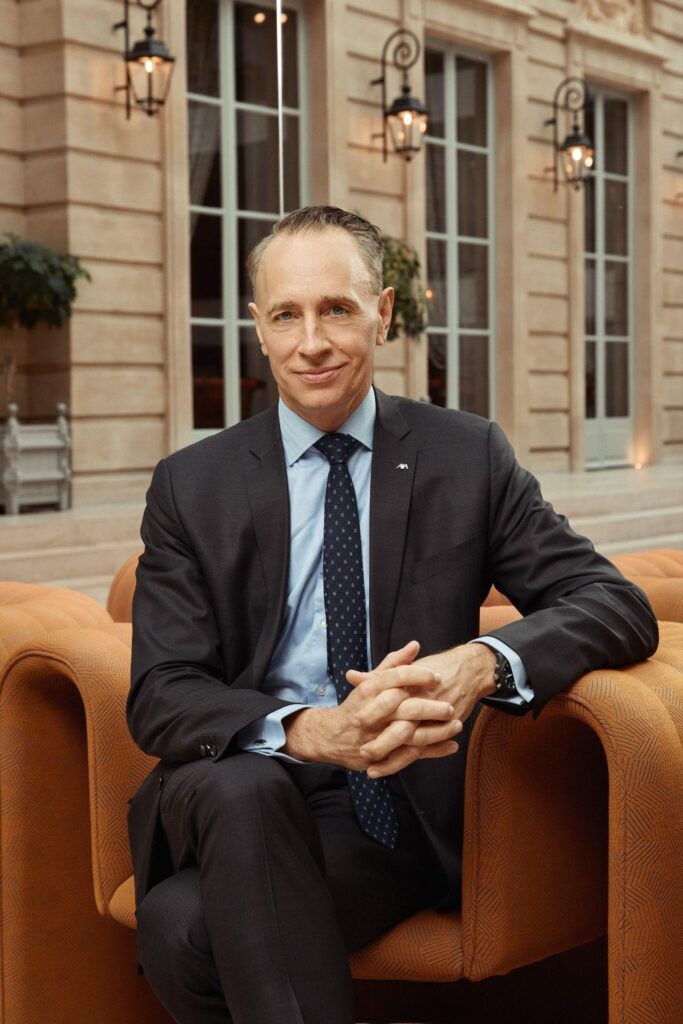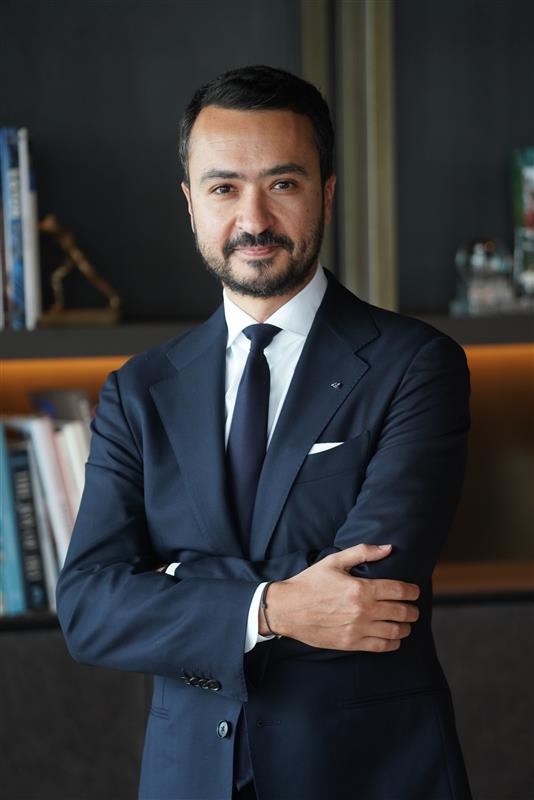When natural disasters strike, the toll on lives and livelihoods is immediate and devastating. Earthquakes alone underscore how fragile communities can be, and it’s just one of many escalating global risks such as climate change, health crises, and economic volatility. For insurers, the challenge is no longer just about paying claims after the fact, but about helping people and societies prevent loss before it happens.
This shift from reaction to prevention sits at the heart of AXA’s global strategy, according to Thomas Buberl, AXA Group CEO, and Hassan El‑Shabrawishi, AXA International Markets CEO. During their recent visit to the Philippines, the two leaders from AXA shared how one of the world’s largest insurers is rethinking its role amid intensifying risks.

Shifting to Risk Prevention
“Risks all over are increasing, the price of risk is increasing, and often, the assumption is that the cost of insurance goes up with it, when in reality, it doesn’t have to,” Buberl explained. “Insurance is a very important tool for social cohesion. The single biggest shift that we need to achieve is to help people with more prevention to mitigate the impact of risks. Because behind each claim is the tragedy of families and a lot of pain, our goal should not only be to pay for losses but to help prevent them from happening in the first place.
For example, after Hurricane Katrina devastated communities and infrastructure in the U.S., many sectors—government, private, and individuals alike—learned valuable lessons. When Hurricane Irma hit years later along a similar trajectory, the damage and claims were significantly lower because people were better prepared. This shows that with the right preventive mindset, we can reduce risks and protect lives, anywhere in the world.”
For AXA, that means investing early in health, workplace safety, and climate‑resilient infrastructure. El‑Shabrawishi noted that this mindset has been embedded early on for AXA. “We were pioneers in talking about prevention as a new competitive advantage for our business,” he said. “We’ve done concrete things on healthcare, launched networks of clinics, and invested in workplace prevention. These are not words, these are actions on the ground.”
The idea, Buberl added, is that prevention must be collective. “You can prevent your home from being more exposed to winds or floods by taking necessary precautions. But we also need to do it in partnership with governments, with communities, because a lot of the time, they are the ones who end up paying a large part of the cost. They, too, have an interest in working with us to ensure that the bill—and the human toll—goes down.”
Climate Transition
AXA’s push for prevention is intertwined with its climate transition agenda. Years before the 2015 Paris Agreement, the company began phasing out investments in coal and tobacco and redirecting capital toward sustainable assets.
“We are on the one hand a big investor,” Buberl recalled. “At the time we were investing in coal, in tobacco, and sometimes these areas had very attractive returns. But if you looked at the natural catastrophe claims and the health claims, it made no sense to tolerate more claims when we could instead help reduce them. That’s why we stopped investing in coal and tobacco to help prevent those tragedies before they happen. Then we helped industries that want to transition go on this journey.”
This realignment, he said, was not about being a “nice corporate citizen” but about ensuring that the business model itself was sustainable. “It was really inherent in the business model,” Buberl said. “We need to do everything on the investment side and on the underwriting side to make the climate transition a reality.”

Local Context
In emerging markets like the Philippines, AXA’s strategy is being tested on two fronts — climate resilience and financial inclusion. With natural hazards a constant threat and insurance penetration hovering around just two percent of GDP, the opportunity and responsibility are both immense.
“The Philippines ticks every box when it comes to long‑term potential,” said El‑Shabrawishi. “It’s a very well‑diversified GDP with immense growth that we see even more potential coming in.” The country’s mix of services, industry, and agriculture, he added, makes it “a very resilient economy for the future.”
But resilience requires inclusive protection. Through digital platforms like Grab, GCash, and Home Credit, AXA is expanding access through simple, accessible coverage under its global business unit, AXA EssentiALL. Operating in 13 emerging and 8 mature countries and serving more than 17 million customers worldwide, AXA EssentiALL was established to focus on underserved sectors, from informal workers to small business owners.
At the same time, AXA’s long-standing partnership with Metrobank, which pioneered bancassurance in the country, continues to play a pivotal role in advancing financial inclusion. Through Metrobank’s extensive nationwide network, AXA is able to reach more Filipinos and provide them with comprehensive protection and financial wellness solutions.
El‑Shabrawishi said these efforts are driven by a deep understanding of real customer needs. “Awareness is not the issue. For someone to take part of their disposable income to buy a product, it has to provide value for them. That’s why we first understand their needs and build something around it, not just push products on them.”
As the world confronts mounting environmental and social risks, Buberl offers a reminder to policymakers and business leaders alike. “Look at insurance as a supporter and enabler of economic and societal development, not as a necessary evil.”
In that sense, prevention is not just a business philosophy but more a collective responsibility, one that determines how societies recover, rebuild, and thrive in an uncertain world.
To deepen its understanding of evolving global threats, AXA recently released its 2025 Future Risk Report, which explores the world’s most pressing risks—from climate change and cybersecurity to social tensions—and how individuals, businesses, and governments can work together to build resilience.
View the full report here to learn how adopting a prevention-first mindset can help create safer, more sustainable communities for all.


